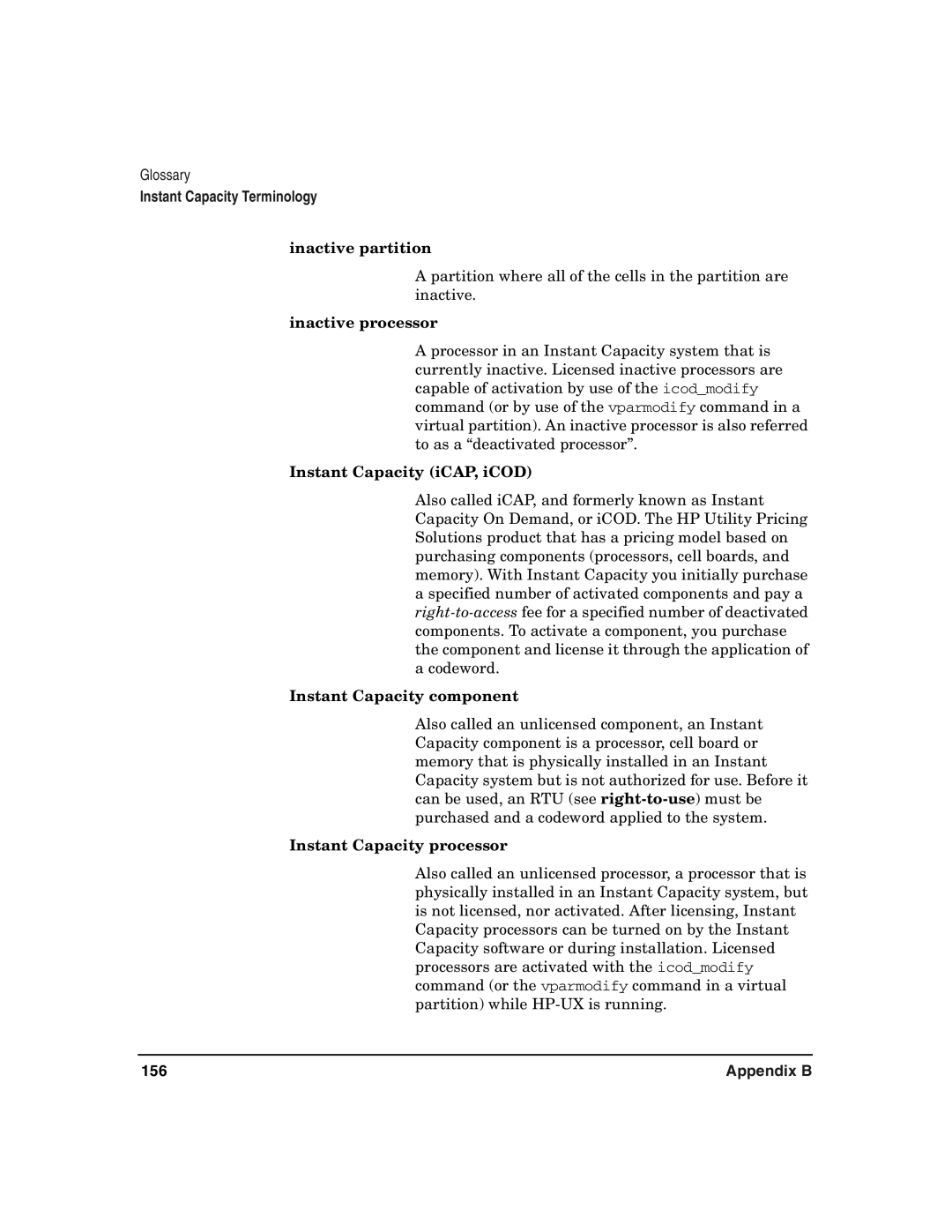Glossary
Instant Capacity Terminology
inactive partition
A partition where all of the cells in the partition are inactive.
inactive processor
A processor in an Instant Capacity system that is currently inactive. Licensed inactive processors are capable of activation by use of the icod_modify command (or by use of the vparmodify command in a virtual partition). An inactive processor is also referred to as a “deactivated processor”.
Instant Capacity (iCAP, iCOD)
Also called iCAP, and formerly known as Instant Capacity On Demand, or iCOD. The HP Utility Pricing Solutions product that has a pricing model based on purchasing components (processors, cell boards, and memory). With Instant Capacity you initially purchase a specified number of activated components and pay a
Instant Capacity component
Also called an unlicensed component, an Instant Capacity component is a processor, cell board or memory that is physically installed in an Instant Capacity system but is not authorized for use. Before it can be used, an RTU (see
Instant Capacity processor
Also called an unlicensed processor, a processor that is physically installed in an Instant Capacity system, but is not licensed, nor activated. After licensing, Instant Capacity processors can be turned on by the Instant Capacity software or during installation. Licensed processors are activated with the icod_modify command (or the vparmodify command in a virtual partition) while
156 | Appendix B |
